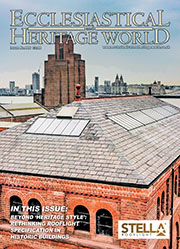Choosing a contractor in Wales

There may be occasions when you need help to maintain your building. Cadw, the Welsh Government's historic environment service works for an accessible and well-protected historic environment for Wales, but is unable to recommend contractors - so here are a few simple tips to help you choose the right professional advisor, builder or craftsperson.
Celebrating 40 years of Cadw: caring for our precious heritage, discovery and learning
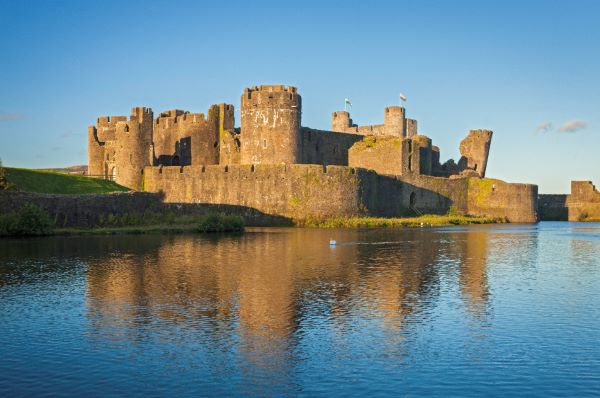
This year marks a significant milestone for Cadw as it celebrates its 40th anniversary and continues on its mission to care for Wales’ historic places while inspiring current and future generations to connect with the nation’s rich cultural heritage.
Click here to find out more.
Architects and building surveyors
Not all architects and surveyors are used to working with historic buildings and traditional building techniques, so choose someone who has the necessary skills, knowledge and experience and ideally, has had specialist training in building conservation.
They should also belong to an appropriate professional body, such as the Royal Institute of British Architects (RIBA) or the Royal Institution of Chartered Surveyors (RICS). Many professional advisors who regularly work with historic buildings are also members of the Institute of Historic Building Conservation (IHBC).
Ideally, you may want to ask the person to show details of past projects that are similar to yours as well as testimonials from the property's owners.
As well as carrying out maintenance inspections on your behalf, an architect or building surveyor will be able to advise you on what needs to be done and how. If necessary, he or she can prepare a specification, seek competitive quotes from suitable builders and oversee the project to ensure that it is carried out to an appropriate standard.
Although you will be charged a fee for this work, appointing a professional advisor for anything more than minor repairs may save you money in the long run by ensuring that only necessary work is carried out, that it is properly completed and that you are charged a fair price.
If you have difficulty finding a conservation architect or surveyor, the professional bodies should be able to advise you on suitable people working in your area.
Structural engineers
If you have identified a problem that may affect the structural integrity of your building, such as movement in a wall or roof structure, you may need to seek advice from a structural engineer.
In most cases, your architect or surveyor will be able to recommend someone with suitable conservation experience.
You can find a selection of specialists in your area in our online directory.
Builders and craftspeople
Unfortunately, most builders lack experience of working with traditional building materials and techniques, and modern methods are not usually suitable for historic buildings. Indeed, the introduction of inappropriate materials can cause far more damage and be far more costly to put right than the original problem that they were intended to remedy.
It is therefore essential that you choose a builder or craftsperson with the appropriate skills and knowledge for the job in hand. It is also essential to find someone who understands the principles of building conservation and will only do what is necessary. Windows, for example, should be repaired whenever possible, rather than replaced. Traditional materials such as lime and stone should be used and generally you should choose a contractor who uses traditional building methods as a rule of thumb and has the proven expertise and skills for the sector.
Try to choose a contractor whose work you have seen examples of. Ideally, the builder or craftsperson should be able to provide evidence of his or her ability to carry out the work required with case studies and testimonials.

A selection of leadwork at its best from Ken Davies of North Wales LCA member Furlong And Davies. Left to right: Code 6 lead chutes installed on a Grade 1-listed church in Wales; detailed eyebrow dormer window with decorative lead moulding facia installed on a private dwelling in North Wales; dormer window covering with lead facia and barge board installed on a private dwelling in Cheshire; Code 7 sand cast rainwater pipe offset detail, installed on a private dwelling in Cheshire. Find out more at www.furlonganddavies.co.uk
Some examples of work carried out by heritage professionals can be found with this article.
York Handmade plays pivotal role in the restoration of iconic Welsh theatre
The award-winning York Handmade Brick Company has played a pivotal role in a restoration of Theatr Clwyd in North Wales.
York Handmade, based at Alne, near Easingwold, has supplied 37,000 specially manufactured bricks for the theatre, which had become unfit for purpose.
Click here to read the full story.
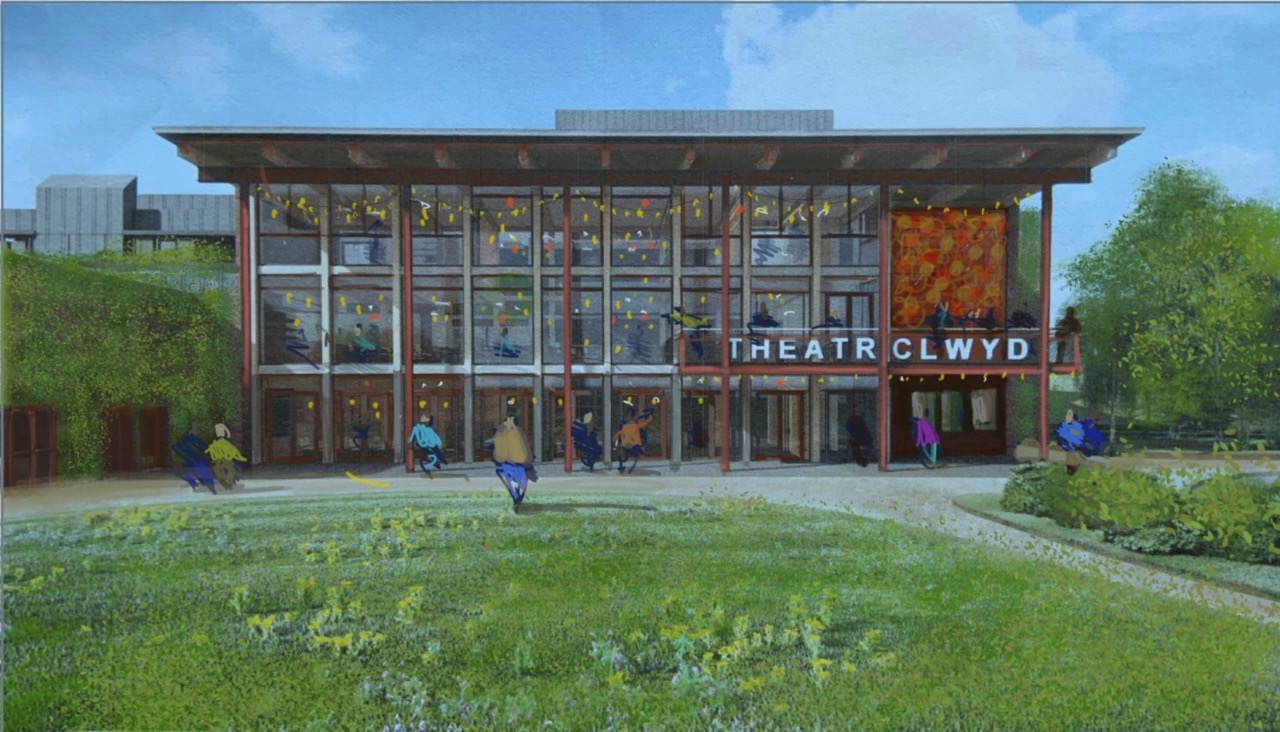
Over £3m spent locally as Ffestiniog & Welsh Highland Railways ‘Tell Stories & Preserve the Past’
Twenty contractors and sub-contractors from across Gwynedd and North Wales have benefited from over £3 million in funding awarded to the Ffestiniog and Welsh Highland Railways (FfWHR) for its Interpretation and Boston Lodge Project by the National Lottery Heritage Fund (NLHF), the Ffestiniog Railway Society and Ffestiniog and Welsh Highland Railway Trust.
Click here to read the full story.
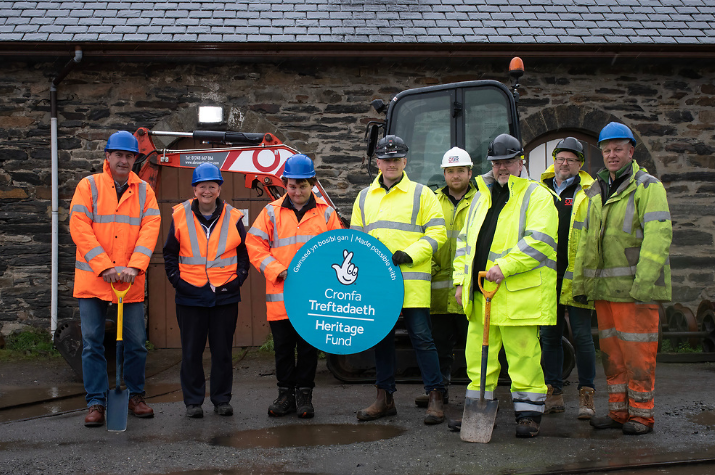
Wales’s medieval jewel now sounds as magnificent as it looks
St Asaph Cathedral dates back 1,400 years, with the current building dating from the 13th century. The cathedral now benefits from a bespoke, comprehensive premium sound system designed and commissioned by expert engineers from Richard King Systems.
Click here to read the full story.
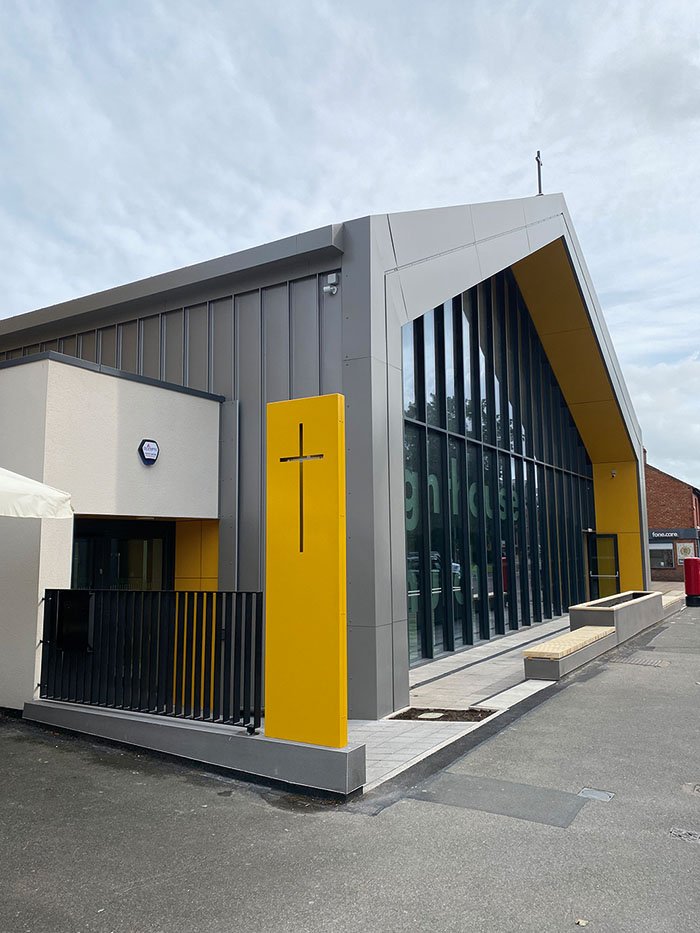
Hinowa spider ‘vital’ to clear trees laying siege to castle
Tree surgeons have become kings of the castle after taking delivery from Access Platform Sales of a Hinowa Lightlift 17.75 Performance IIIS spider platform.
That’s because their first project for the exceptional tracked boom lift has been to clear diseased ash trees from around a Welsh medieval castle.
Click here for further information.
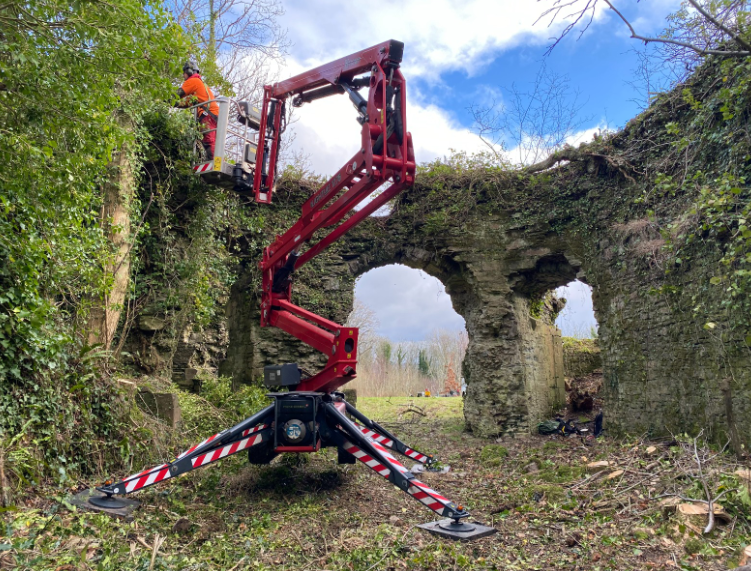
A selection of skilled and experienced Wales based heritage professionals can be found by skill and area of Wales in our online directory to be found at the top right hand side of our Home Page - just look for the Welsh symbol.









